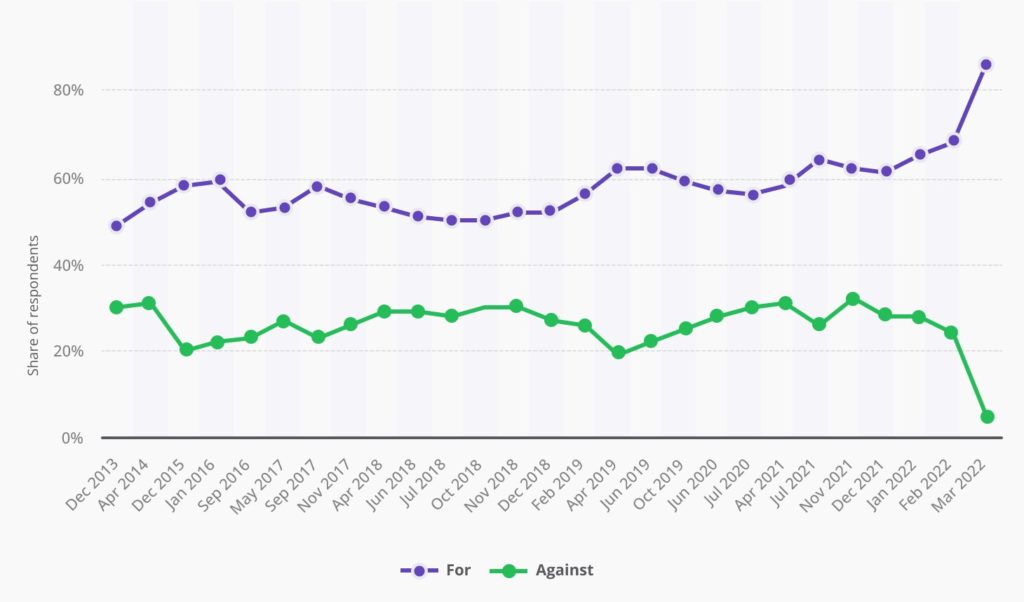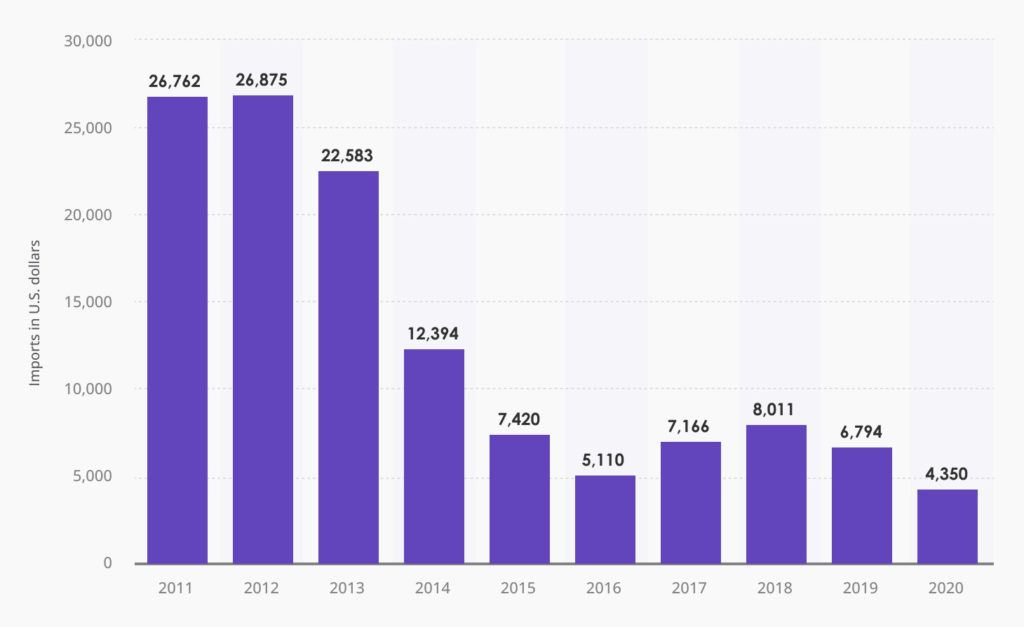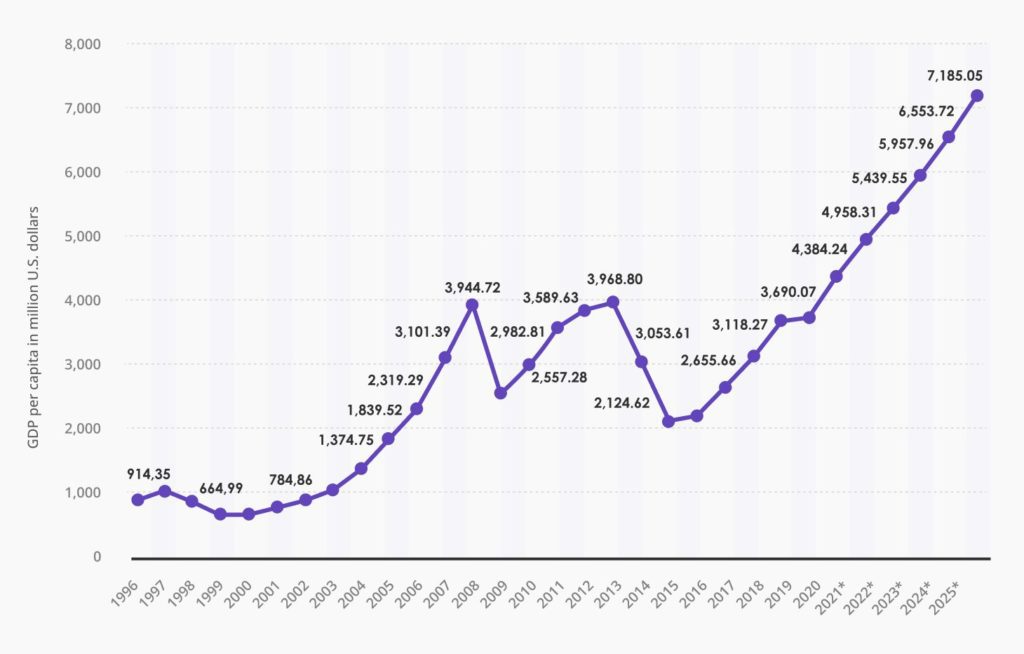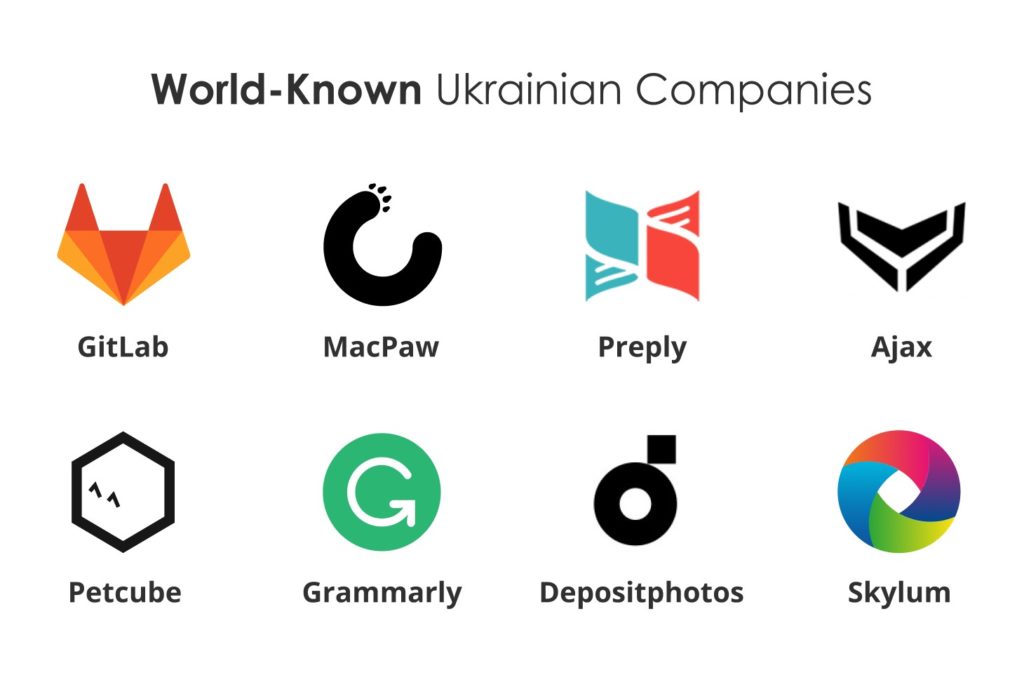
Russia has been waging a full-scale war on Ukraine for almost three months. The Russian army has committed numerous war crimes, besieging Mariupol, devastating Bucha, illegally deporting over a million people to its territories, and killing thousands of civilians.
Despite all these atrocities and the unspeakable suffering inflicted by the Russians on Ukraine, many misconceptions about the relationship between the two countries still exist.
The media and political leaders keep using terms like “brotherly nations”, “shared culture and history”, “Russian sphere of influence”, and “peace at any cost even if it means Ukraine’s capitulation” when referring to the war.
None of these terms is adequate. But they suggest that many still can’t comprehend the reasons behind this war in the wider context of Ukraine-Russia’s turbulent relationships over the years.
Not Brothers: Why Ukrainians and Russians are Different Nations and Shouldn’t be Equated
The idea of “brotherhood” stems from the days of Kyivan Rus — a political federation, stretching across the modern territories of Ukraine, Belarus, and Russia in the 9th-13th century. Yet, Russians collectively believe that they are “the primary successors of Kyivan Rus, so they have the right to be the elder brother and decide for all”.
Factually, this isn’t correct. Under this logic, we should call Italy and Turkey brotherly nations since they were both in the realms of the Byzantine empire. Yet, no one harbors such beliefs.
Secondly, if we do want to go as far back as the 9th century, Ukraine’s current capital, Kyiv, was a prominent regional center. Moscow didn’t exist at all.
“Kyiv was already a major metropolis when Moscow was not even a village.”
Yuval Noah Harari

Source: U.S. Embassy Kyiv Twitter Account
The myth of the “shared history of brotherly nations” was actively cultivated during the subsequent occupation of Ukraine’s lands by the Russian Empire and then the Soviet Union.
For centuries, Russian leaders attempted to assimilate Ukrainians and erase the very notion of Ukraine, just as they are trying to do at present.
Russian filtration camps, set up in besieged Ukrainian cities, resemble the Gulag concentration camps. Russians are taking away grain and equipment from Ukrainian farmers just as they did during the 1932-1933 artificial famine.
History repeats itself. Only this time it’s harder for Russians to hide all the crimes.
The idea that Ukrainians are “brothers who share a common history” with our oppressors is illogical and even offensive to modern-day Ukrainians. Even more so, in light of Ukraine repeatedly showing that our chosen path is towards Euro-integration and independence from Russia’s imperialistic ambitions.
The percentage of Ukrainians that support joining the EU exceeded 80% in March 2022, climbing up right after the full-scale invasion began.

Source: Statista
We made our national choice to distance ourselves from Russia time and again over the past three decades:
- In 1991, 90% of voters supported the Independence of Ukraine
- In 2004, Orange Revolution sparked in protest against the electoral fraud of a pro-Russian candidate
- In 2014, the Revolution of Dignity (Euromaidan) came to be a manifestation of Ukrainian citizens’ right to choose the future of Ukraine themselves — instead of following the whim of a pro-Russian dictator
- In 2019, the Orthodox Church of Ukraine broke ties with the Russian Confession by receiving autocephaly from the Patriarch of Constantinople.
- Since 2014, Ukrainians are resisting in Russian-Ukrainian war that started with Crimea annexation and the Donbas occupation and escalated in 2022.
Today, we believe our choice to fight with the Russian dictatorship will define not only our future but one for other global democracies.
“Hadn’t Ukrainians not fought, had Ukrainians capitulated, our future, the future of democracy would look very bleak right now. Because Ukrainians did resist because Ukrainians are fighting, they’ve bought other democracies a certain amount of time.”
Timothy Snyder on Kyiv Security Forum on May 8
Ukrainian Economy: Deliberate Independence from Russia
The 2014 invasion of Crimea and Donbas by Russian forces created a pressing need to reduce Russia’s economic influence over Ukraine.
Back in 2013, Russia was the largest Ukraine trading partner, with 23.81% of the export partner share. Ukraine was also greatly dependent on Russian energy resources. In 2013, 60% of Ukraine’s gas supply came from that state. To resist Russian aggression, we had to gain independence in terms of economy as well.
First, Ukraine ceased its participation as an “Associate state” of the CIS union and reached Association Agreement with European Union. Cutting ties with Russia resulted in a decrease in export from Russia to Ukraine, ending with the 2022 full embargo.
Total value of goods exported to Ukraine from Russia from 2011 to 2020:

Source: Statista
Another important step was to cut dependence on Russian gas and oil and connect to the EU power grid.
Between 2016-2022, Ukraine mustered this step. At present, we have no direct energy contracts with Russia. Slovakia is the leading natural gas import origin of Ukraine, followed up by Hungary and Poland.
In the wake of economic separation and constant military aggression, Ukraine kept growing economically. The GDP returned to the pre-war figures in 2020 and was positioned to keep an upward trajectory — until the escalation of war started.
Ukraine’s gross domestic product per capita from 1996 to 2020, and with the projection up to 2026:

Source: Statista
The structure of Ukraine’s economy will significantly change after the war.
In the past, its three most important export sectors were agriculture, metallurgy, and information technology (IT) as a part of general services export. Because of Russian aggression — mine planting in the farmlands and blocked ports in Odesa — the agricultural sector is experiencing a decline.
Ukraine’s metallurgy potential is concentrated in the eastern regions, ravaged by warfare the most. Naturally, this sector will have significant losses too. The base metals enterprises have already lost over 3,3 billion dollars in less than 3 months.
So in these challenging times, the export of IT services and software products will rise to become the primary drivers of Ukraine’s economy.
IT Sector: The Future of Ukraine’s Economy
In 2021, the IT sector constituted 4% of the GDP of Ukraine. The industry also employed over 252,000 people at highly competitive salaries.
Having a career in IT is considered both a social lift for people and a way to drive the economy forward. The average income of IT specialists is higher when comparing to other professions — and thus they have more disposable income to drive the domestic economy.
As per IT Ukraine Report 2021, more than half of IT companies offered outsourcing services in 2021. However, a growing number of firms started providing both IT services and products (33%), and some are solely product companies (16%). Some of them became known globally. For instance, the below-mentioned companies have Ukrainian roots.

IT has become one of the priorities for the Ukrainian government, especially for 2019-2021. Post-election, President Zelensky started digitizing the government services.
As a result, there emerged DIIA — an e-government application — and a host of other government and volunteer-led initiatives:
- Prozorro — government procurement system
- ‘Oberih’ — military document management system
- IT Army of Ukraine, helping in cyber-warfare
- Universal artillery calculator for land forces
The State of the IT Sector Post-Invasion
By design, the IT industry is digital-led and agile. In a matter of days, Ukrainian IT companies activated business continuity plans and started restoring their operations.
Some relocated staff to the west part of Ukraine or European states. Some 61% of IT specialists have moved to a safer place since February 24.
At present, the sector operates at 80% of its pre-war output levels. As per the DOU report, 84% of IT specialists resumed their full-time work, and only 6% of them are looking for a job (mostly sales, designers, and marketing specialists). Many clients continue working with Ukrainian IT companies that took extra steps to secure their operations and contain risks.
Ukraine has been in a war-like state since 2014. We had years to hone our disaster recovery and business continuity plans.
Months ahead of February 2022 escalation, Ukrainian IT industry leaders took preemptive measures to ensure that operations could continue uninterrupted.
The Ukrainian IT industry realizes its role in the Ukrainian economy and its responsibility to clients and partners. We cannot say that there are no risks at all — that would be an understatement.
But we can confirm that our continuous commitment to high service standards is now complemented by an unbeatable ability to manage risks and thrive amidst disruption. Or by paraphrasing the famous NY Times letter: We thought we knew what perseverance was. And then we had to top ourselves.
At Edvantis, we are grateful to everyone who supports Ukraine in any way — and even more so to our clients.
Final Thoughts
At this point, resisting Russian aggression is not only about getting back our territories or reclaiming freedom. It has become a fight for our existence.
The more independent we become — the better our fight will get. A key part of increasing independence is restarting our economy. By supporting our IT industry, you are helping Ukraine win. After all, 91% of IT specialists constantly donate money to volunteers and the military. At least 87% are able to work and pay taxes in full. As a result, the resilient IT sector has provided Ukraine’s budget with a record-breaking income of 2 billion dollars for the first quarter of 2022.
The above can’t happen without our foreign clients and partners who chose to continue doing business in Ukraine — and even scale up their engagements. Together we make a difference.
Are you interested in learning about other ways you can support Ukraine? Read our recent article!







